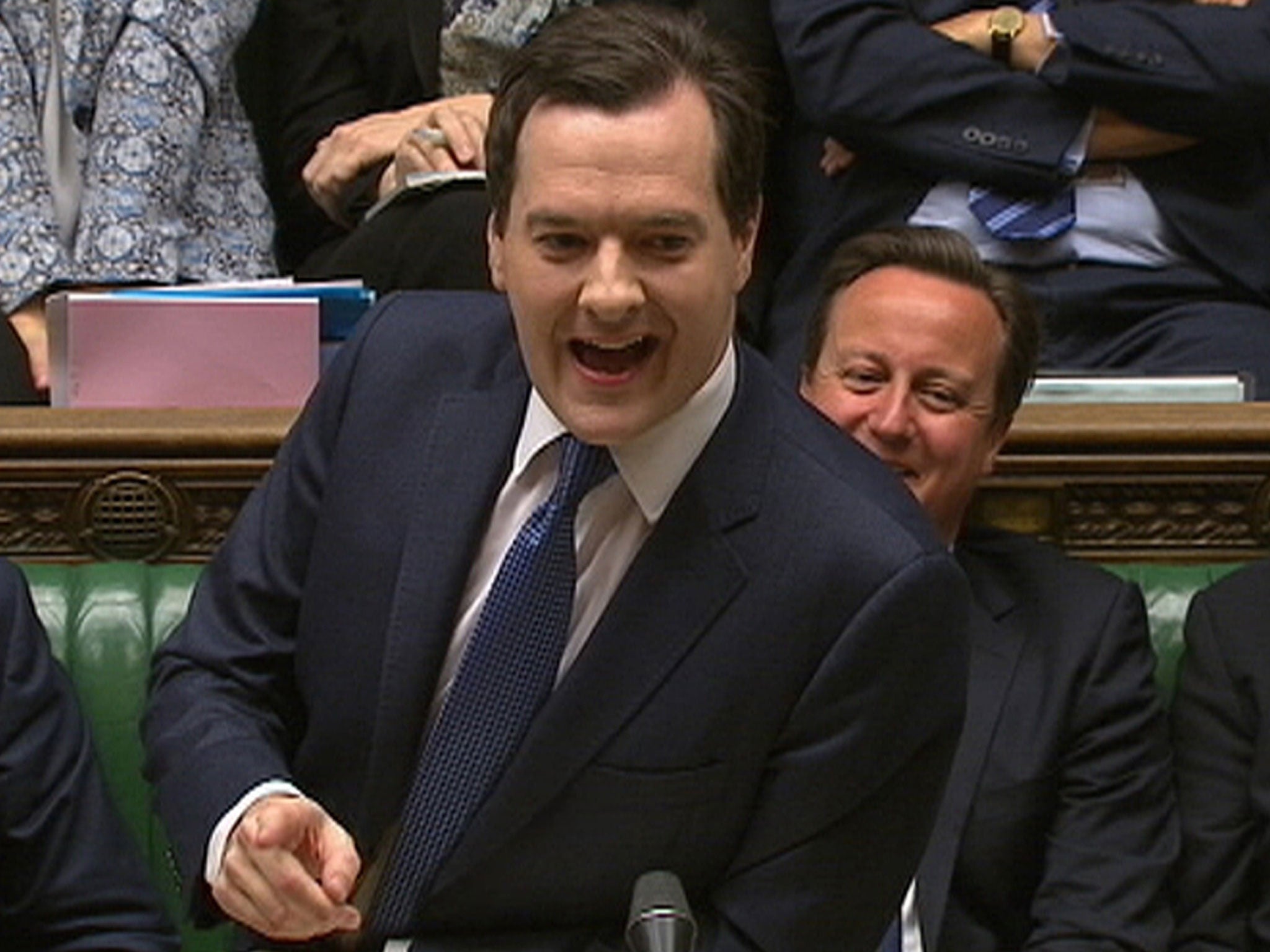The election will be fought on benefits
The Chancellor and his shadow are manoeuvring skilfully for the vote-winning position between social justice and fiscal prudence


Welcome to the second act of The Great Converging On The Centre Ground Show. In the first act, at the start of this month, Ed Miliband and Ed Balls accepted the coalition's spending plans. In the second act, last week, George Osborne announced the details of those spending plans and stole two Labour policies. First he announced "integrated health and social care", bringing together NHS and local council care budgets, a policy advocated for some time by Andy Burnham, Labour's Health spokesman. Then the Chancellor said: "We are going to introduce a new Welfare Cap to control the overall costs of the benefits bill." That was what Ed Miliband had proposed three weeks ago.
Oppositions often change policies to move closer to governments, but the shift the other way is rare, so we should note it well. Naturally, the theft of Labour's policies is largely rhetorical. As Burnham points out in his interview with The Independent on Sunday today, Osborne's adoption of the language of a "seamless" service provided by the NHS and local councils is a way of raiding the NHS budget, which is protected by the Coalition Agreement, to pay for the care of old people. It is hardly the brave new Jerusalem of a "renewed NHS settlement" based on whole-person care of Burnham's dreams.
And the total welfare cap was a bit of a notional notion when Miliband espoused it. It is simply a target for benefits spending, a bit like the spending plans for all other departments, but with a few curlicues around it and a footnote saying, "No, really, we mean it this time, honest." What, after all, is going to happen if, because of an unexpected rise in unemployment or a mass outbreak of a disabling illness, the total is breached? Well, someone called Robert Chote, who used to work for this newspaper and who looks a bit like Novak Djokovic, will get jolly cross. He is the head of the Office for Budget Responsibility, and, as Osborne explained, "In future, when a government looks set to breach the Cap because it is failing to control welfare, the OBR will issue a public warning."
Part of the purpose of this cross-dressing is, in fact, to show off in even sharper contrast the difference between the two parties over the cap on household benefits, which the Government has set at the level of average earnings, or £26,000 a year.
Osborne has so often been described as an intensely political Chancellor that we should make it his official title. The Political Chancellor devised this policy almost by accident early on in this government. It has nothing to do with the grand unifying theory of everything devised by Iain Duncan Smith to simplify benefits – indeed, it complicates them even before the simplification has begun – but it is one of the Government's most popular policies. Well, I say popular. When it is put to focus groups, they hate it. Twenty-six grand on benefits? You're joking, they say. That is far too high. And yet Ed Miliband has got the Labour Party into the position where it says that some people, if they live in London, should get even more.
Miliband's total benefits spending cap was an attempt to divert attention from this disaster. But now that the Political Chancellor has matched it, attention can focus again on this difference between the two parties, which will be only to Labour's disbenefit.
In the wider struggle for advantage, however, the Political Chancellor has been outflanked by the Shadow Political Chancellor. The Spending Round on Wednesday was the Political Chancellor's attempt to trap the Labour Party into saying that it would spend and borrow more than the Government. But Ed Balls saw that trap from many months off and, unusually for a Labour politician, decided to go round it.
Balls's decision to accept the spending total for 2015-16, the first tax year of a possible Labour government, meant that the reporting of the Spending Round was dominated by the absence of growth that had knocked the Government's forecasts off course, rather than by the disarray of the opposition.
What is most striking about this "pivot into a forward-looking posture", as one Shadow Cabinet minister puts it, is how subdued the reaction from the Labour Party has been. Polly Toynbee, from the pages of The Guardian, may have demanded more "anger" and "fury", but the People's Assembly last weekend, the latest incarnation of the "unite briefly before splitting again" idea on the so-called left, was mildness itself in its denunciations of "the leadership". Even Len McCluskey, leader of the Unite union, is reduced to complaining about "seats being handed out on a grace-and-favour basis to Oxbridge-educated 'special advisers'" – oblivious to the irony of his having helped elect one of them as Labour leader.
This is a welcome sign of Labour maturity. I hear that Ed Balls has said that the party's problem at the next election is not going to be the voters complaining that politicians are all the same. He thinks the party's priority is going to be "managing differentiation not manufacturing it".
Rather unexpectedly for someone who learned his craft with Gordon Brown, he seems to accept that Labour does not need to create artificial dividing lines for fear of putting itself on the wrong side of them. If Miliband has shifted from his view that the centre ground will come to him and now accepts that he will have to go to the centre ground, and if he can bring the party with him, the Political Chancellor and the Political Prime Minister might have a fight on their hands.

Join our commenting forum
Join thought-provoking conversations, follow other Independent readers and see their replies